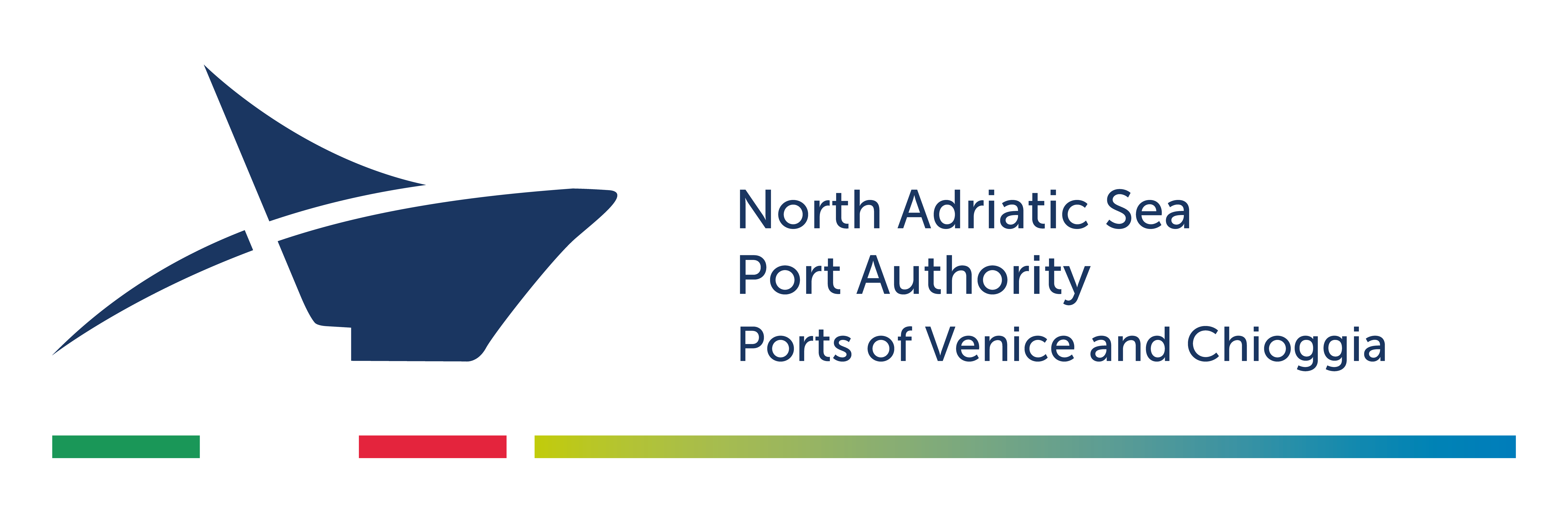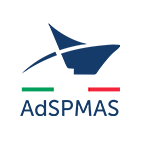Products subject to the issuing of veterinary clearance
Products subject to the issuing of veterinary clearance
The Venice Border Inspection Post carries out health checks including the taking of official samples on consignments of products of animal origin and feed intended to be introduced into the territory of the European Union.
Imports of the products listed below are subject to the issuance of veterinary clearance:
products of animal origin or containing products of animal origin covered by vegetable feed and additives listed in Regulation 09/669/EC; Decision 2007/275/EC;
vegetable feed and additives not listed in Regulation 09/669/EC;
vegetable feed and additives not listed in Regulation 09/669/EC but still subject to veterinary control based on Legislative Decree no. 223 of 17 June 2003;
products subject to veterinary control on the basis of national provisions and/or for which community legislation provides for control by the competent authority. Below is a general list of products subject to the issuance of authorization on the basis of national provisions.
Similar certifications are also required for transit, transshipment, re-importation and forwarding to customs warehouse operations.
Insights
L’introduzione nella Unione Europea di animali vivi e prodotti derivati provenienti da Paesi terzi, è subordinata all’emissione di nullaosta veterinario.
A salvaguardia della salute pubblica e della sanità animale, tale adempimento deve essere obbligatoriamente svolto al momento dell’ingresso di animali e merci nel territorio della Unione Europea.
L’Unione Europea già dai primi anni 90, ha richiesto agli stati membri che nei porti, aeroporti e confini terrestri comunitari, venissero creati dei punti di controllo sanitario per gli animali e prodotti derivati provenienti da Paesi terzi. Tali strutture costruite e organizzate sulla base di linee guida comuni, sono state definite Border Inspection Posts (BIP) o Posti di Ispezione Frontalieri (PIF) secondo la denominazione italiana.
Gli uffici PIF dei 28 stati membri dell’Unione oltre a dover soddisfare gli standard previsti dalla Unione Europea (Dec.01/812/CE), sono soggetti ad approvazione e a periodiche verifiche da parte del Food and Veterinary Office comunitario. Tali verifiche hanno lo scopo di accertare lo stato delle strutture e delle dotazioni e la conformità agli standard comunitari delle procedure ivi applicate.
In base alle caratteristiche strutturali e alle dotazioni disponibili, il PIF riceve una o più abilitazioni per diverse categorie di animali e di prodotti.
L’elenco dei PIF europei, con le relative categorie di abilitazione, è stato approvato con Decisione 2009/821/CE ed è soggetto a costante aggiornamento. La decisione elenca i PIF dell’Unione Europea attraverso i quali è possibile introdurre animali e prodotti derivati, le abilitazioni possedute e le eventuali condizioni/limitazioni particolari.
Della rete di controllo costituita dai PIF, sono parte integrante già da alcuni anni, analoghe strutture presenti nei paesi che fanno parte dello spazio economico europeo quali Islanda, Norvegia e Svizzera.
Le competenze dei PIF comprendono i controlli veterinari su animali vivi, sui prodotti di origine animale e mangimi destinati all’alimentazione animale e le attività di vigilanza su depositi doganali e sulle attività di catering e di smaltimento di rifiuti alimentari presenti all’interno dei porti ed aeroporti comunitari.
I PIF svolgono inoltre compiti di supporto tecnico ed operativo agli Uffici Doganali per il contrasto dell’importazione illegale di animali e prodotti derivati.
L’elenco e i punti di contatto dei PIF comunitari e le principali norme sanitarie in materia di importazione di animali e prodotti derivati, sono consultabili, sul web, sul sito della Commissione Europea: clicca qui
I POSTI DI ISPEZIONE FRONTALIERI NAZIONALI
In Italia, i controlli sanitari su animali e prodotti provenienti da Paesi terzi, sono materia di competenza del Ministero della Salute che si avvale, per le attività di vigilanza ed ispezione, di 23 uffici PIF dislocati nei maggiori porti ed aeroporti nazionali.
Il portale del Ministero della Salute dedica all’attività dei PIF una apposita sezione in cui è possibile visionare gli indirizzi e i punti di contatto dei singoli uffici, i dettagli sull’attività di controllo svolta anno per anno e le linee guida operative. Clicca qui
- Untreated and treated skins of animals other than birds and ungulates: of other animals (reptile skins, for example 4103 20).
Excluded from veterinary checks are hides subjected to a complete tanning process, wet-blue hides, pickled hides and limed hides treated with lime and in brine at pH 12-13 for at least 8 hours. - Hunting trophies of species other than birds and ungulates if not subjected to complete taxidermy treatment and anatomical finds of animal origin 9705.
Animal preparations referred to in Regulation (EU) no. are excluded. 142/2011, annex XIII, chapter VI, part C, point 1, letters a) to f), importable without restrictions pursuant to the same regulation. - Pharmacologically active substances of veterinary interest.
- Pharmacologically active substances, other than those of animal origin, intended for establishments using animals for experimental purposes.
- Veterinary medicinal products, without Marketing Authorization (AIC), other than vaccines, intended for:
– to establishments using animals for experimental purposes;
– for in vitro laboratory tests or technical tests at authorized pharmaceutical workshops, pursuant to Legislative Decree 6 April 2006, n. 193, university institutes or research centres. - Mixtures of non-pathogenic bacterial agents used for the purification of ornamental aquariums, consisting of microorganisms belonging to one or more of the following species: Bacillus subtilis, Bacillus licheniformis, Pseudomonas stutzeri, European Nitrosomonas and Nitrobacterium winogradskyi.
- Samples of food and feed of animal origin and by-products of animal origin and derived products, intended for research purposes, particular studies, experimental use, analysis, cultural purposes, exhibition use, as well as to be used in the form of commercial samples, including those used for testing machinery, including those consisting of:
- Pathological material including:
– bacterial, viral, parasitic and mycotic agents, or their derivatives, toxins and metabolites, with pathogenic activity towards animal organisms, including those intended for the production of veterinary medicinal products with immunological action;
– immunological veterinary medicinal products without Marketing Authorisation;
– unconventional microbial agents;
– infected cells of animal origin or their lysates and extracts;
– secreted, excreted, transudates, exudates, blood, plasma, serum, organs and tissues obtained from infected animals;
– neoplastic cells derived from animal tissues;
-poisons and toxins of animal origin intended for research and diagnostic purposes;
– secreted, excreted, transudates, exudates, blood, plasma, serum, organs and tissues of animals with pathological manifestations of a non-infectious nature or subjected to experimental treatments with substances with toxicological action. - Antibodies of animal origin other than those classifiable as intermediate products or regulated as IVD by Legislative Decree 8 September 2000 n. 332.
- Non-infected cells of animal origin, DNA fractions, cell lines and cell and tissue extracts secreted, excreted, transudates, exudates, blood, plasma, serum, organs and tissues obtained from non-infected animals , excluding enzymes.
Animal preparations referred to in Regulation (EU) no. are excluded. 142/2011, annex XIII, chapter VI, part C, point 1, letters a) to f), importable without restrictions pursuant to the same regulation. - Enzymes of veterinary interest other than rennet or rennet and those classifiable as intermediate products (i.e. enzymes intended to be used for the production of medical devices, in vitro diagnostic kits and laboratory reagents already regulated for the purposes of their import by Regulations (EC) n. 1069/2009 and (EU) n.142/2011) 3507.
- Non-viable invertebrate organisms and their larvae, portions, secretions, excretions and metabolites 0511.
Animal preparations referred to in Regulation (EU) no. are excluded. 142/2011, annex XIII, chapter VI, part C, point 1, letters a) to f), importable without restrictions pursuant to the same regulation Non-pathogenic microorganisms of veterinary interest, other than additives, including those used, in the food industry, for the transformation of products of animal origin (3002 9050).
(Microbial starters used in the preparation of meat sausages are excluded, the production technology of which does not involve heat treatments, already regulatedati, for the purposes of their importation, by the ministerial decree of 28 December 1994). - In vitro diagnostics or laboratory reagents for veterinary use ready for use other than those classifiable as intermediate products
Control procedures and sanitary conditions applicable to imports
Community legislation on the import of food products of animal origin, feed of animal origin and by-products is quite complex and, forty years after the first EEC directives on the import of fresh meat, has today achieved a high degree of harmonisation.
Access to services
The arrival of animals and derived products from third countries, as well as that of vegetable feed, must be pre-notified to the competent PIF, regardless of the customs destination.
Importers or their representatives can fulfill their notification of arrival obligations by sending as detailed a description of the consignment(s) as possible via email. The pre-notification obligations can also be fulfilled by completing the relevant part of the format available after accessing the TRACES system.
The TRACES system is an IT tool developed by the European Commission to manage the movements, within the European Union or from third countries, of animals and derived products.
Access to the system, in addition to being guaranteed to the health authorities of the Member States and the States of the European Economic Area, has more recently also been extended to the authorities of exporting third countries which can use the TRACES system to issue the required health certifications in electronic format.
Commercial operators can also access TRACES after registering and use it to request the issuance of veterinary clearance. The user interface provides for the insertion of some basic information relating to the match, useful for planning interventions.
The TRACES system also allows you to upload the accompanying documentation (health certificates, waybills, labels, etc.). The functions available to the Competent Authority allow the issuing of veterinary authorizations for products of animal origin (CVED) and for plant feed and other products intended for animal feed (DCE).
The TRACES system is also used to manage any non-compliance including the activation of the Community Rapid Alert System for Feed and Food (RASFF).
To use this tool you must register as a user by following the procedure illustrated on the welcome page. Click here.
The PIF offices also use the NSIS-Sintesi computer system. This IT tool, managed by the Ministry of Health, has a complementary function to TRACES and is used to issue health clearance for those products which, on the basis of national provisions, are subject to the issue of a veterinary control certificate (DVE), a certificate not provided for in the Community IT system TRACES. The PIF offices use the NSIS-Sintesi system to issue the DVE.
Even for the use of the NSIS-Sintesi system by operators it is necessary to register and be validated by the competent PIF for the territory. Click here
Since July 2013, the Single Customs Desk has been active at the port of Venice thanks to the integration of the NSIS-Sintesi system with the AIDA application of the Customs Agency.
Since 9 October 2014, interoperability has also been active between AIDA and the TRACES system for the issuing of CVED and DCE veterinary clearances.
For assistance with registration for both TRACES and NSIS-Sintesi. as well as for the first data entries, it is possible to request assistance from PIF staff.
Taxes and payment methods
The tariffs applied by national BIPs to veterinary checks on imports are defined by Legislative Decree no. 194 “Regulations on the methods of refinancing official health checks in implementation of Regulation (EC) no. 882/2004” of 19 November 2008 subsequently integrated by the Ministerial Decree of 19 December 2012 “Updating the amounts of tariffs and rights payable to the Ministry of Health for services rendered at the request and convenience of the interested parties”.
Synoptic tables of the tariffs applicable to services rendered by the PIF office.
The fees must be paid in advance of the visit request and cover the costs of issuing veterinary authorizations including any laboratory investigations, carried out in compliance with the annual monitoring plans prepared by the Ministry of Health.
These rates do not include the costs for laboratory investigations that may be necessary due to national or community provisions or due to previous non-compliance.
Taxes for services rendered by the Venice PIF Office can be paid:
- by crediting postal current account 19170307
2. by bank transfer to iban code IT05 H076 0102 0000 0001 9170 307 of MINISTERO DELLA SALUTE UFFICIO VETERINARIO DI PORTO 1416



